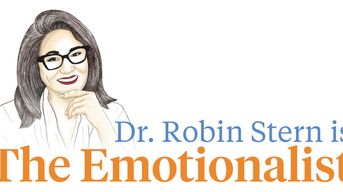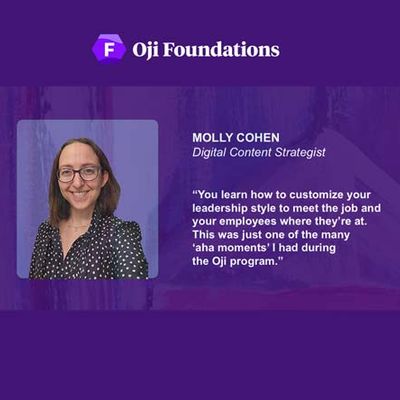The Emotionalist: Emotional Boundaries

Dr. Robin Stern Tackles Emotional Boundaries:
"One thing I am consistently working to be better about is having emotional boundaries from negative or drama-stricken co-workers. I'd like your advice on how to stay consistent with those emotional boundaries." - Stefanie
Stefanie,
The very good news is that you are working on being 'better' about it; that you recognize it is not easy and that you are reaching out for additional guidance. I hope I can be helpful.
People's reactions are usually a combination of nature (born with it) and nurture (learned it from being in the world). We are all wired differently, are born with different temperaments and have unique experiences growing up. For example, for those of us who are introverts (by nature) and ‘reset’ with quiet time, we can feel stressed, overwhelmed and activated after days of continuous Zoom meetings with others. For those of us more sensitive to noise and outside stimuli (again, by nature) we may crave some time to retreat and listen to soft music or to take a mindful moment. For those of us who have grown up in a home where we saw the adults in our lives taking turns talking and listening at the dinner table (nurture), we likely have learned how to be skillful about waiting our turn.
In our workplaces we will engage with people whose nature feels ‘like us’, making it easy to get along and get comfortable. On the other hand, we will not engage with people whose energy feels ‘too much’ or ‘not enough’… that is, not like us (by nature). One helpful way to approach everyone we meet is through the lens of being an ‘emotion scientist’ that is open to others and is curious rather than critical.
At the same time, you will need to be skillful about your own feelings and what feels right to you. Like this: you may be very curious about your drama-stricken co-worker and stop judging… but, that doesn’t mean you will like being around them or feel good when you feel stuck in a conversation. And we know that we can never change anyone else’s behavior, just our own. We are always responsible for what WE say and do.
So, to your question about how to get even better at keeping emotional boundaries…
- If the drama doesn’t involve you and you want to engage with the individual, you can set yourself up for success by using a regulation strategy to bring yourself to a place of calm. Try to listen and empathize and ask if your co-worker wants your help in problem-solving or strategizing. Bring yourself to a place of calm first. Talking in a calm voice is one way to co-regulate (help your co-worker calm down), as emotions are contagious.
- If the drama does involve you, and the conversation becomes unconstructive or a power struggle, opt out. Find your own words for stopping the endless back and forth, like this: “I hear you, but we are going to have to agree to disagree. I appreciate you are feeling that way, but I can’t have a conversation when emotions are so heated. Let’s revisit this another time.”
- Beware of the empathy trap, spending too much time in your co-worker's shoes.
- If you find yourself going round and round the same dramatic narrative, let your co-worker know you care but you don’t think you really are being helpful.
Some other useful strategies you can consider are:
- ask if your co-worker might want to do something to distract themselves or focus on something else
- ask your co-worker if they would like to hear about strategies you use when you are activated
- mention that you’ve noticed venting often isn’t that helpful
- mention that you have work you need to get done
- if appropriate, point out that they may need to talk to a professional
Stefanie – think about the ways you are already handling these moments and what is working and what is not. I recommend taking a look at the suggestions above and try them out. And, as you proceed, notice barriers in your way.
I would recommend reading Marc Brackett’s book Permission to Feel and my book The Gaslight Effect, as well as the articles highlighted above. And , finally, please be sure to include yourself in the circle people you have compassion for. You deserve your own attention and self-care.
Latest Posts
BACK TO HOME ❯Sign up for our People-Powered Newsletter.

 Meet our Program Experts
Meet our Program Experts
 Why Oji is Different
Why Oji is Different
 First Impressions of the Oji Foundations Program
First Impressions of the Oji Foundations Program